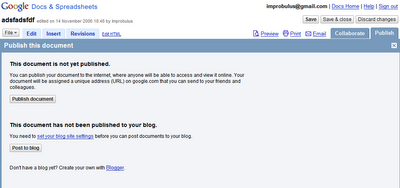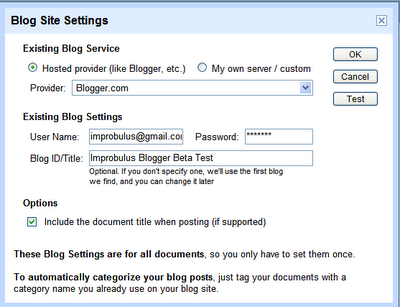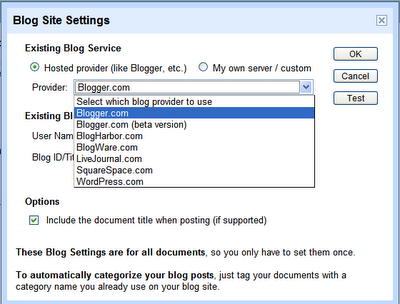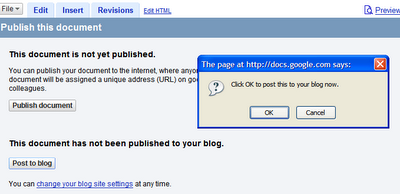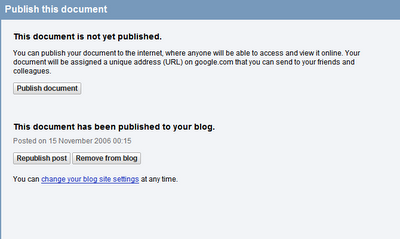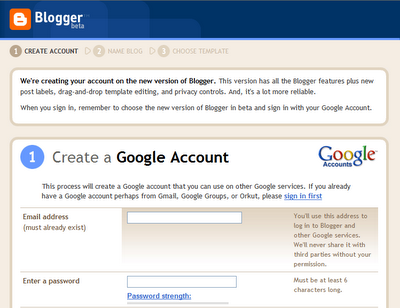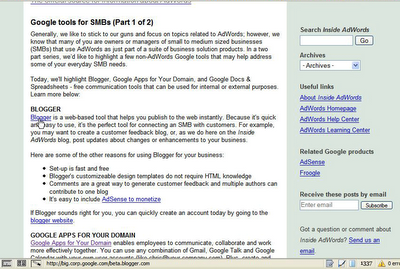I've said before that I
don't blog about my day job, and I've linked to
some resources for anonymity and privacy in blogging (I've not started using
Tor yet, but I plan to try it).
But there are lots of reasons why I blog anonymously, and it's not just worry that potential future employers may check out my online writings and count them against me (as per the well known "
Bloggers need not apply" article). Many
women in academe seem to blog anonymously, for career reasons (as in, it's tough enough for women to get jobs in the first place never mind get ahead, why give them more potential ammunition to shoot you down with?). But, while I share those concerns, my main reasons are different - and before anyone says it, it's not to stop anyone teasing me for gooily posting videos of cute widdle animals or my Mom from seeing my occasional
slightly naughty posts, either!
Privacy and security
First, privacy and security. I have friends who have been stalked online, and it's very stressful as well as frightening. In many ways I believe life is a lot easier and simpler for men, on this as well as possibly other fronts.
The relatively recent
web rage incident (reported in October 2006), where a man was hunted down in real life and beaten up with a pickaxe handle after online altercations, is surely reason enough not to give out personal details online. Of course you can't fail to let some facts out sometimes: it's easy for anyone who reads my posts to know I'm female, live in London, and love the Net, computers, technology, gadgets and music. But so do a zillion others. Add in a few more facts, though, and trust me any intelligent stalker will be able to find me without too much trouble.
There is no way I am going to allow sufficiently identifying details of myself to be easily available to the world via a few clicks of the mouse. Someone once tracked me down on the Web just from knowing five facts about me including the type of job I do, my gender and the university I went to - without even having to know my name. It was someone I trusted, who tried it just to see if she could, but it just shows how easily it can be done; let a few details out and you just don't know who they could get passed on to.
I've had threatening phone calls in the past too, I think they caught the guy who I suspect just happened to have chosen my number randomly amongst many others he regularly called (because I read about his capture in the news and it was the same MO - modus operandi in case anyone doesn't know the slang by now!, plus the calls to me stopped after they caught him, so I think it must have been him). It would be very easy for a stalker to find my home address on the Electoral Register with very few details as my real name is fairly unusual (here's a clue, it ain't Jane Doe) - and alas I don't have the money to get a big house with barbed wire and bodyguards.
I even go so far as to have separate identities for the different things I do online, e.g. one for things related to this blog, others for other things I'm involved with (and no, I'm not going to say if it's macrame, Morris dancing or trainspotting forums, chatrooms or even blogs!). I don't hide out completely from the world though - I do go to geek events in person (and yes just hope that I don't bump into someone who knows my real name. Though my interests are fairly distinct so it's fairly unlikely, and the one or two who do cross the boundaries like I do are pretty discreet. So far..)
I feel it is better to be over-cautious and safe than not. I know it may be unlikely that some nutter will take a fancy to me (or conversely want to harm me), but it's better to be safe than sorry.
Impartiality and integrity
Second, impartiality and personal integrity. I don't have the luxury of being a self-employed independent consultant answerable to no one but myself - I have to have a day job. I don't work in technology, although obviously I have a very keen interest in it, have taught myself a lot and have made a few geek friends. However my employer (not a technology company) has some customers who
are in technology (I may be being over-cautious here again, as many companies are bound to have some mega corporations as customers, whether it's for supplies of stationery or indeed advertising services), and of course they might be customers
of some technology companies (e.g. it's a rare business that doesn't buy and use Microsoft Office).
But my personal life is personal and my opinions are my own, and I don't wish to feel inhibited about expressing them if there is a chance they might be attributed to my employer or anyone else associated with me (obviously if my real name is not shown online, that minimises the risk of someone ringing up my employer to tell me to shut up or else they won't buy or sell to them! Although I like to think that when I am critical, it is constructively so).
If I genuinely think a Web service or product needs improvement, I want to be able to be say so without worrying about whether that might reflect on my employer, or more importantly, whether my employer (possibly being even more over-cautious than I am) thinks there's a vague chance it might reflect badly on my employer. And contrariwise there is absolutely no way I am going to praise some product I don't like just because the company is a customer of my employer, and I don't want to be in a position where I might feel under pressure to do so. Anonymity as regards the world at large again minimises that risk.
As I don't work in technology I don't have any particular allegiances and my only "competitors" are other bloggers and Websites. I approach things very much from a user's and blogger's viewpoint, because that is what I primarily am. My only allegiances are to good, usable, accessible products and services, and to honest, clear writing which I hope others will find thought-provoking and useful.
UPDATE: for possible reasons why it may be a good thing to blog under your real name whatever your antics, or indeed to be found out, see
this post. All the same though, it's very unlikely most of us would be offered a book deal. So, cautious type that I am, if others want to lead the charge to out themselves and their pecadilloes on their blogs, so much so that it all becomes commonplace and ignored, all power to them - but I won't be doing so!
Tags:
blogging, job, work, privacy, anonymity, personal, life, personal life, anonymous blogging, Improbulus, Consuming Experience, A Consuming Experience




